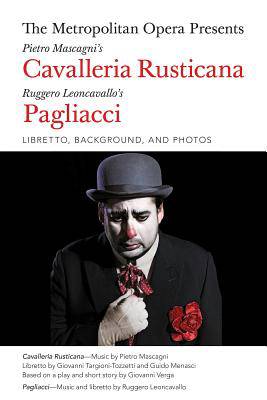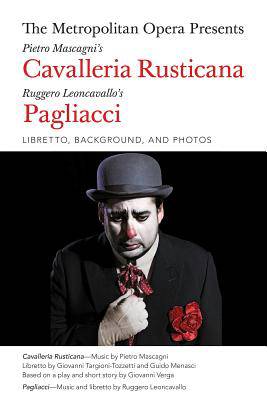
- Afhalen na 1 uur in een winkel met voorraad
- Gratis thuislevering in België vanaf € 30
- Ruim aanbod met 7 miljoen producten
- Afhalen na 1 uur in een winkel met voorraad
- Gratis thuislevering in België vanaf € 30
- Ruim aanbod met 7 miljoen producten
Zoeken
The Metropolitan Opera Presents: Mascagni's Cavalleria Rusticana/Leoncavallo's Pagliacci
Libretto, Background and Photos
€ 22,45
+ 44 punten
Omschrijving
Opera's most enduring tragic double bill of verismo masterpieces, Cavalleria rusticana and Pagliacci share many common features, most noticeably their direct language, plot simplicity, common-folk characters, and themes of adultery, betrayal, revenge, and murder. Written within two years of each other, and both set in villages in southern Italy, they feature dramatic confrontations, turbulent emotions, and gritty realism. Cavalleria rusticana takes place on Easter in a Sicilian village, where Turiddu, after returning from the army to find his beloved Lola married to the carter Alfio, found solace with the peasant girl Santuzza but ultimately betrayed her and ruined her reputation. When Turiddu goes back to Lola, Santuzza seeks revenge, with tragic results. In Pagliacci, a troupe of traveling commedia dell'arte players is torn apart when its leader, Canio, discovers that his wife, Nedda, has taken a lover. In the ensuing "play within a play " the actors struggle to go on with their performance as the line between theater and reality collapses, leading to an explosive climax.
Alleen bij Standaard Boekhandel
+ 44 punten op je klantenkaart van Standaard Boekhandel
Beoordelingen
We publiceren alleen reviews die voldoen aan de voorwaarden voor reviews. Bekijk onze voorwaarden voor reviews.











